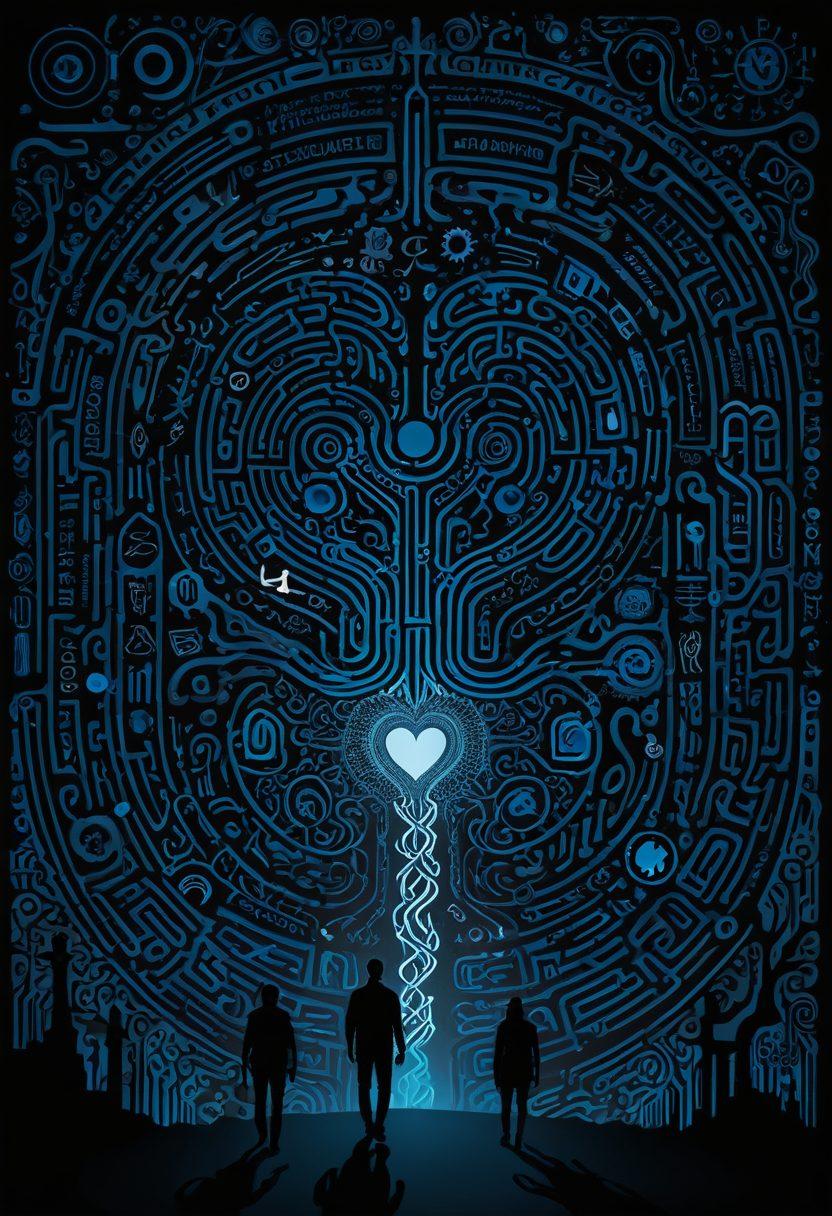Navigating the Abyss: A Comprehensive Guide to Adult Content Indexing and Its Impact on Mental Health
In today’s digital age, adult content is more accessible than ever before. With just a few clicks, we can dive into a world filled with xxx-rated material. However, what many of us don’t realize is the complex structure behind this vast ocean of explicit content—indexing. As we explore the depths of how adult content indexing shapes our mental well-being, we must ask: do these carefully curated catalogs encourage healthy relationships with sexuality or lead us down a path of sadness and discontent? Adult content often comes processed through a meticulous database of entries, each designed to classify and categorize explicit material. This indexing is not just about organization; it can alter the user experience profoundly. For instance, when people delete sorrowful entries or seek out content that fills them with grief, they can unintentionally reinforce an unhealthy relationship with their own desires. The question becomes: can the way we navigate these directories influence our emotions? In a society eager for connection yet battling feelings of melancholy, the answer is vitally important. At its core, adult indexing serves as a form of social registry, a means to document and navigate desire. However, what happens when this cataloging process oversimplifies the complexity of our emotional responses? It might lead to unrealistic expectations about intimacy and trigger feelings of inadequacy or unhappiness. Instead of fostering genuine connections, a mere database can trap users in a cycle of despair, making them question their own worth every time they encounter a list of laughing, smiling faces while grappling with grief. Imagine scrolling through an archive of explicit videos and recognizing a consistent pattern: the user begins with excitement but often leaves feeling empty or disheartened. These entries in their viewing history tell a story—one that might even echo the sorrows and disappointments in their real lives. This juxtaposition begs the question: could the classification of adult content, without deeper context, perpetuate feelings of unfulfilled desire? As more adults realize the impact of these choices, it becomes imperative to approach indexing with awareness and intentionality. The conversation around adult content indexing is not only about the content itself but also how it influences mental health. To protect ourselves from the potential pitfalls of these registries and archives, we may need to engage in reflective practices. How can we reshape our viewing habits to cultivate more satisfying emotional experiences? One actionable step could be to thoughtfully curate our personal lists, prioritizing content that uplifts rather than sources of discontent. By consciously choosing our entries, we can turn the tables on indexing and reclaim our mental well-being from the shadows of despair.
Unveiling the Dark Side: The Emotional Impact of Adult Content Cataloging
In the vast universe of the internet, adult content exists in abundance, cataloged meticulously in archives and directories. This adult indexing creates opportunities but also unveils a darker, often shadowy side. While the convenience of accessing a plethora of explicit material can seem enticing, have we paused to consider the emotional toll it may take on those who delve into the bowels of this domain? From the sadness that may creep in during late-night scrolling to the overwhelming feelings of discontent and despair that can accompany obsessive viewing, it's crucial to examine how adult content cataloging might impact mental health.
Think about the last time you stumbled upon an extensive list of xxx-rated sites. Did it spark curiosity, or did you find yourself feeling a twinge of guilt or melancholy? Adult content, in all its classified glory, often draws individuals in, promising satisfaction and exploration. Unfortunately, instead of fulfillment, users sometimes find themselves grappling with feelings of grief and sorrow when they realize that their engagement with this material may have unintended consequences on their well-being. The distinction between enjoyment and emotional turmoil can become unclear, creating a cycle of emotional highs followed by robust lows.
As the digital landscape expands, so too does the complexity of adult content classification. Each entry in the database of adult material is part of a wider narrative that often ignores the emotional and psychological ramifications of consumption. Research suggests that high exposure to such explicit content can increase feelings of unhappiness and lead to a potential descent into depression. So, how do we navigate this intricate web of temptation and consequence? Is there a way to enjoy adult content responsibly, without the weight of sorrow resting on our shoulders?
Consider this: emotional well-being isn’t a mere checkbox in a registry; it’s a holistic condition that thrives on balance. Creating boundaries around adult indexing and understanding our motivations is key. A thoughtful approach may include setting limits on exposure and seeking alternative forms of fulfillment. Conversations about this taboo subject are vital. Sharing personal experiences and establishing support systems can lighten the heavy burden of discontent that often accompanies single-user exploration of explicit material. Would you be willing to talk about this with a friend?
Ultimately, understanding the emotional impact of adult content cataloging is about enhancing our lives rather than succumbing to darkness. We can make conscious choices: whether that means considering the motivations behind our engagements or seeking healthier forms of connection and joy. It's about recognizing when we feel a sense of despair creeping in and taking proactive steps toward mental wellness. The next time you peruse an archive of adult content, ask yourself this — is your consumption nurturing joy, or is it feeding a cycle of grief and dissatisfaction?
From Lists to Feelings: Understanding the Connection Between Adult Indexing and Mental Health
In today's digital landscape, the term 'indexing' often sounds like a tech-savvy jargon reserved for the IT crowd. But beneath the surface lies the intricate web of connections between adult content indexing and mental health. Have you ever stopped to ponder why certain materials create feelings of sorrow, melancholy, or even despair? As society continues to struggle with issues like depression and unhappiness, it becomes critical to understand not only how adult content is recorded and organized but also its impact on our emotional well-being. This blog will navigate these depths, exploring the hidden ties between classification systems like directories and the emotional experiences they evoke.
Adult content indexing might seem innocuous—a simple database, a list, or a catalog of explicit materials. But here’s the kicker: the way we archive these entries could significantly shape our collective consciousness. Consider how often you scroll through an online registry, mindlessly perusing xxx-rated content. In those moments, do you feel a twinge of sadness or an unsettling sense of discontent? Perhaps you find yourself trapped in rounds of browsing that lead only to moments of fleeting satisfaction followed by a heavier heart. Stories resonate with us, and understanding our behavior in response to adult content is essential to mental health.
Think of it this way: each record we engage with carries an emotional weight, impacting our feelings and overall mental state. Just like books in a library evoke different reactions based on their covers and titles, adult indexing holds the same potential. It is said, 'What you consume consumes you.' This idea challenges us to question our browsing habits and their ongoing effects on us. Are we layering more grief or sorrow atop our preexisting feelings? As we dive deeper into the world of adult content, we must also consider how it connects to broader experiences of grief and despair in our lives.
Consider the alternate path. What if we transformed our engagement with adult content into a more introspective journey? By being mindful of how we index and classify such materials, we could redefine our emotional exchanges, turning moments of grief into understanding and compassion. Instead of spiraling into sadness, one might use adult indexing as a platform for self-discovery. Reflecting on how particular entries in these databases affect our mood can ignite a powerful conversation within ourselves. Do these entries bring joy, confusion, or perhaps a pang of longing?
In conclusion, as we continue to explore the deep waters of adult content indexing, we must remain vigilant about its impact on our mental well-being. By embracing a mindset of awareness, we hold the power to transform the negative emotions associated with explicit content into opportunities for growth and understanding. It’s time to delve into our databases, examining not just entries but also how these interactions shape our emotional landscapes. Are you ready to take the plunge? Join me in reflecting on our choices, our emotions, and how we can index our desires in a way that fosters empathy and connection instead of sorrow and discontent.


